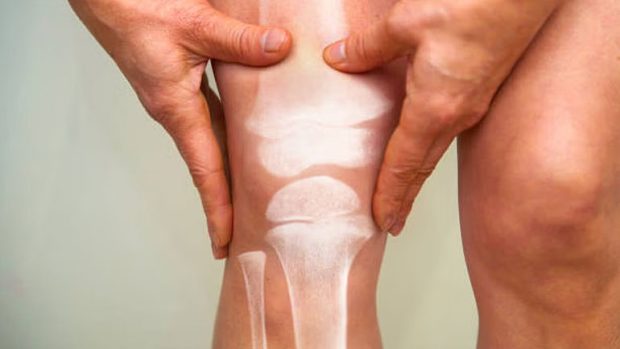

PTI, May 28, 2022, 11:00 AM IST

Image Source: National Herald
Infection with the SARS-CoV-2 virus, which causes COVID-19, can lead to severe bone loss during the acute and post-recovery phases of the disease, according to a study conducted in hamsters.
The findings, recently published in the peer-reviewed journal Nature Communications, provide insights into the possible long-term complications of COVID-19.
In addition to lung infection, complications of different organ systems in the long-term SARS-CoV-2 infection, or “long COVID,” have been increasingly recognised in patients with disease, the researchers said.
However, the full spectrum of clinical manifestations, especially the influence of SARS-CoV-2 infection on bone metabolism, has yet to be fully understood, they said.
To study the effects of SARS-CoV-2 infection on bone metabolism, the researchers from the University of Hong Kong (HKUMed) infected Syrian hamsters with SARS-CoV-2.
They then collected their bone tissues after the infection and analysed them using three-dimensional microcomputerised tomography (CT) scans.
The study found that SARS-CoV-2 infection induced severe bone loss from 20 per cent to 50 per cent progressively in particular to the trabecular bone in the long bones and lumbar vertebrae.
This effect extended from the acute phase to the chronic phase of infection, according to the researchers.
The pathological osteopenia — loss of minerals like calcium and phosphate by bones — was found to be associated with the inflammatory activation of osteoclasts — a kind of cell responsible for break down of the bone tissue.
The cytokine dysregulation or inability to control inflammation, induced by SARS-CoV-2, triggered an amplified pro-inflammatory cascade in the skeletal tissues to augment their breakdown.
The researchers said their team is the first in the world to report the effects of SARS-CoV-2 on bone metabolism using a well-established Syrian hamster model that closely mimics COVID-19 in humans.
The findings indicate that the pathological bone loss may be an important but neglected complication, which warrants more extensive investigations during the long-term follow-up of COVID-19 patients, they added.
Udayavani is now on Telegram. Click here to join our channel and stay updated with the latest news.




Air pollution, extreme weather could increase risk of prolonged pregnancy: Study


Carbohydrate cravings may be related to overall severity of depression: Study


SAHAYOGA: Comprehensive care for children with Type 1 Diabetes launched at MAHE Manipal


Newer Advances in Blood Cancer Treatment


Death rates in young adults remain higher post-pandemic, US study finds


K’taka irrigation issues: CM urges Deve Gowda to come forward to protect state’s interest


Two held in Rs 850 crore ponzi scheme case: Cyberabad Police


Delhi stampede: Opposition blames govt for ‘gross mismanagement’, demands Vaishnaw’s resignation


Passengers got confused between ‘Prayagraj Express, Prayagraj Special’, causing stampede: Sources


2nd US flight in Amritsar, many deportees complain being shackled; third plane on Sunday night
You seem to have an Ad Blocker on.
To continue reading, please turn it off or whitelist Udayavani.